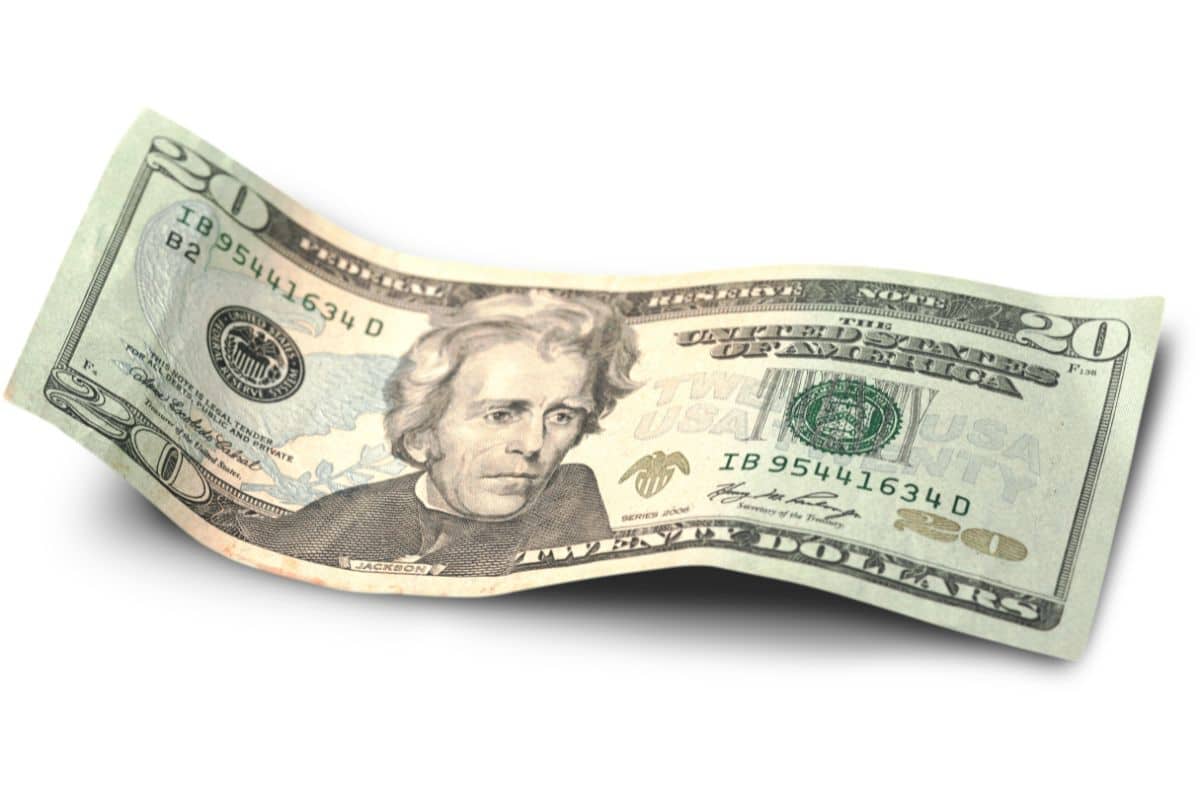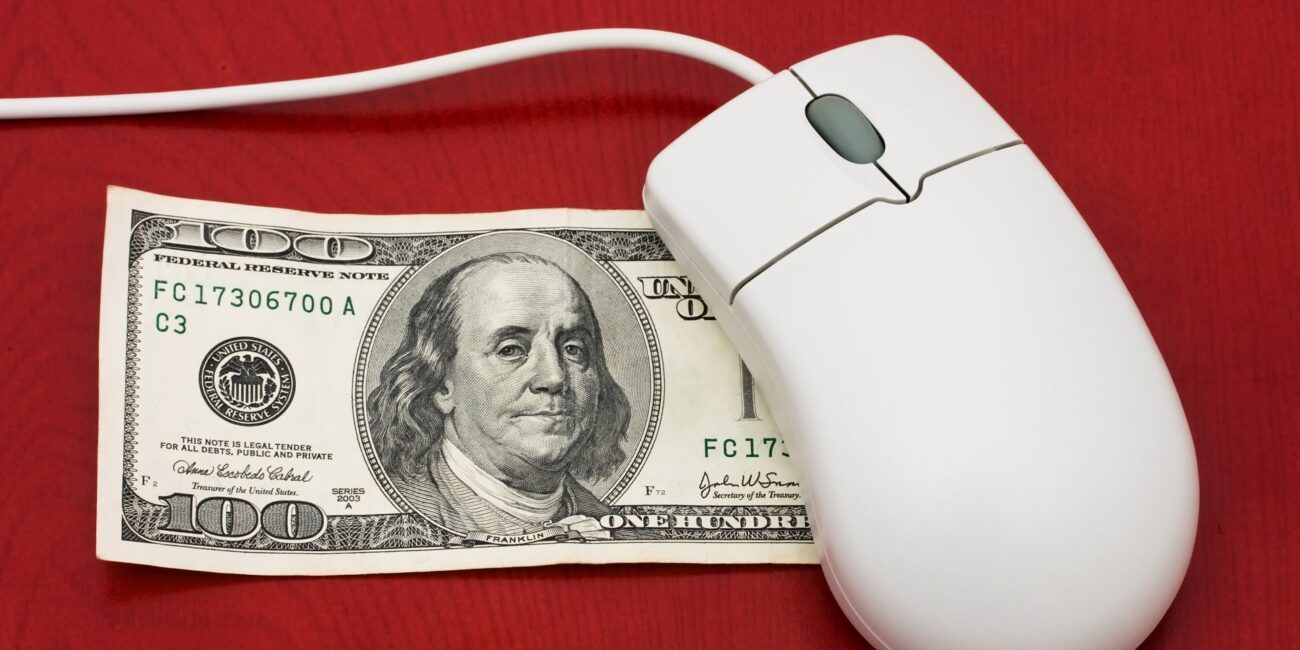Have you ever wondered how much $20 an hour can really amount to when it comes to your annual salary?
Whether you are considering a job offer or trying to budget your monthly expenses, understanding the financial implications of an hourly wage is crucial.
In this blog, we will explore how much $20 an hour can translate into various pay periods, such as weekly, monthly, and yearly earnings.
We will also discuss the tax implications of a $20 hourly wage, job opportunities that pay $20 an hour, and how to maximize savings on this income.
So, let’s dive in and discover the possibilities of making $20 an hour as your salary.
Is $20 a Good Hourly Rate?

$20 per hour is generally considered a good hourly rate. It translates to an annual salary of about $41,600 if working full-time. This provides a comfortable living wage in many parts of the country. However, in high-cost-of-living areas like New York or San Francisco, $20 per hour would still be low pay. Overall, $20 an hour provides a decent pay rate for many middle-income jobs.
Convert $20 Per Hour to Weekly, Monthly, and Yearly Salary
Now, let’s explore how much $20 an hour can translate into weekly, monthly, and yearly earnings.
$20 an Hour is How Much a Year?
If you earn $20 for every hour you work, your yearly salary would be $41,600. We figure this out by looking at how much you make in a week, which is $20 for each of the 40 hours you work, and then we multiply that by the number of weeks in a year, which is 52. So, it’s 40 hours a week multiplied by $20 an hour, times 52 weeks, which equals $41,600 in annual income.
$20 an Hour is How Much a Month?
If you earn $20 for every hour you work, your monthly salary would be around $3,466.67. We figured this out by taking your yearly income and dividing it by 12 months. So, it’s 40 hours a week multiplied by $20 an hour, times 52 weeks, and then divided by 12 months, which gives you about $3,466.67.
$20 an Hour is How Much a Biweekly?
If you earn $20 for every hour you work, your monthly salary would be $1,600.
You work 40 hours a week, and if you multiply that by your hourly wage of $20, you get $800. Then, if you multiply $800 by 2 (for two weeks in a pay period), you get $1,600, which is your monthly salary.
$20 an Hour is How Much a Week?
If you earn $20 for every hour you work, your weekly earnings would be $800. We figure this out by looking at how many hours you work in a week, which is 40 hours (based on working 5 days, 8 hours each day), and then we multiply that by your hourly wage of $20. So, it’s 40 hours a week multiplied by $20 an hour, which equals $800.
$20 an Hour is How Much a Day?
If you earn $20 every hour you work, your daily salary would be $160. We figured this out by looking at how many hours you work in a day, which is 8 hours, and then we multiply that by your hourly wage of $20. So, it’s 8 hours a day multiplied by $20 an hour, which equals $160.
Part time $20 an hour is How Much a Year?
If you work fewer hours each week, your yearly income goes down a lot compared to working full-time.
For example, if you work 30 hours a week instead of 40, here’s how you find out your new yearly total:
$20 for each hour x 30 hours a week x 52 weeks in a year = $31,200
By working 10 hours less each week (30 instead of 40), your yearly pay at $20 an hour goes down from $41,600 to $31,200.
That’s a $10,400 less per year just by working part-time!
Here’s a table showing how much you make each year depending on how many hours you work each week at $20 an hour:
| Hours Per Week | Earnings Per Week | Annual Earnings |
|---|---|---|
| 40 | $800 | $41,600 |
| 35 | $700 | $36,400 |
| 30 | $600 | $31,200 |
| 25 | $500 | $26,000 |
| 20 | $400 | $20,800 |
The more hours you work each week, the more you earn each year when you’re paid $20 an hour.
Of course, you also need to think about things like benefits and having a good balance between work and personal life. But when it comes to how much money you make each year, the number of hours you work really matters!
$20 an Hour With Overtime is How Much a Year?

Let’s talk about how working overtime can give you more money each year.
Overtime happens when you work more than 40 hours in a week. Usually, you get paid 1.5 times your normal hourly wage for these extra hours.
So, if you usually make $20 per hour, for overtime you’d make $30 for every hour after 40 in a week.
Here’s an example to help you understand:
Let’s say you work 45 hours in Week 1.
- You get paid $800 for the regular 40 hours at $20 per hour.
- Then, for the 5 overtime hours, you get paid $150 at $30 per hour.
So, your total pay for Week 1 is $800 + $150 = $950.
Now, if you worked 45 hours every week for 52 weeks, here’s how much more money you’d make each year because of overtime:
$950 per week x 52 weeks in a year = $49,400.
That’s $7,500 more per year than if you didn’t work any overtime and just stuck to the 40-hour week.
Overtime pay can really increase your total earnings. But remember, working extra hours might also mean more taxes taken out of your paycheck.
$20 an Hour With Unpaid Time off is How Much a Year?
Let’s talk about how taking unpaid time off can affect how much money you make each year.
Up until now, we’ve been assuming that you work every week of the year, which is 52 weeks.
But what if you take some extra time off without pay for things like holidays, being sick, or other reasons? How does that change how much money you make overall?
Here’s an example to help you understand:
Let’s say you take 2 weeks off.
That means instead of working for 52 weeks, you’re only working for 50 paid weeks.
If you usually make $800 per week at a full-time job working 40 hours, here’s how taking 2 weeks off affects your yearly total:
$800 per week x 50 paid weeks = $40,000.
That’s $1,600 less than if you worked for the full 52 weeks.
The more time you take off without pay, the less money you’ll make overall in a year. It’s important to remember to consider holidays, sick days, and vacation time when you’re figuring out how much you’ll earn each year with an hourly wage.
$20 An Hour Is How Much A Year After Taxes

When it comes to figuring out how much you make in a year after taxes with a $20 hourly wage, it can get a bit complicated because taxes take a chunk out of your paycheck.
Ideally, if you earned $20 an hour and worked full-time, you might expect to make around $46,100 in a year before taxes. But in reality, taxes take a good portion of that away, and you won’t get to use it all.
So, how much would you actually take home after taxes?
It depends on where you live and your personal situation. You can use online websites that can help you estimate how much you’ll pay in federal taxes and what your final yearly income might be.
Remember, taxes include things like Social Security, Medicare, state income taxes, and federal income taxes. If your state has its own income tax, you’ll have to pay that too. In most states, that’s around 3.2% of your yearly income.
As a rough estimate, you might expect to pay about $6,500 in income tax each year with a $20 hourly wage. That’s roughly 15% of your wage.
So, after taxes, someone earning $20 per hour might take home around $35,000 a year overall.
But keep in mind, this number could be higher or lower depending on your own situation and where you live. It’s hard to give an exact amount because everyone’s circumstances are different.
Is $20 an Hour a Good Salary?
[caption id=”attachment_10539″ align=”aligncenter” width=”1000″ FILE – In this June 15, 2018 photo, twenty dollar bills are counted in North Andover, Mass. As the middle of the year approaches, it’s a smart time to check in on the money goals you set back in January and make any necessary adjustments. If you didn’t create goals, it’s not too late to establish them for the second half of the year. First, define or update what your goals are. (AP Photo/Elise Amendola, File)[/caption
FILE – In this June 15, 2018 photo, twenty dollar bills are counted in North Andover, Mass. As the middle of the year approaches, it’s a smart time to check in on the money goals you set back in January and make any necessary adjustments. If you didn’t create goals, it’s not too late to establish them for the second half of the year. First, define or update what your goals are. (AP Photo/Elise Amendola, File)[/caption
Whether earning $20 an hour is good depends on where you live and how you live.
Here are some things to think about:
- Cost of living: In some places, $20 an hour goes a long way. But in expensive cities like San Francisco or New York, it might not be enough to cover all your expenses.
- Experience: For someone just starting out, $20 an hour is pretty good. But as you gain more experience, you might expect to earn more, like $25 or even more per hour.
- Type of job: Different jobs pay differently. While $20 an hour is more than the minimum wage, it might not be considered high for jobs that need special skills, like tech or healthcare.
- Benefits: Some jobs offer extra perks like health insurance or retirement plans. Even if they pay a bit less per hour, the benefits can make up for it.
Overall, $20 an hour can be enough to live on for many people, especially in places where the cost of living is lower. But if you’re in a pricier area or have a lot of experience, it might not feel like quite enough.
Best Jobs That Pay $20 An Hour

Earning $20 an hour can add up to around $41,600 a year, assuming you work full-time, which is 40 hours each week. This might seem like a decent amount, especially if you’re single or part of a dual-income household without kids.
Let’s explore some jobs that pay around $20 an hour without needing a four-year college degree:
- Administrative Assistant: They help managers and executives with office tasks, like organizing schedules and preparing reports. They usually make about $18 an hour.
- Bookkeeping Clerk: They handle financial transactions for companies, like preparing reports and managing invoices. They earn around $19 an hour.
- Claims Adjuster: They investigate insurance claims and determine payments. They make about $28 an hour.
- Commercial Driver: They transport goods over long distances, like delivery or truck drivers. They earn about $22.50 an hour.
- Computer User Support Specialist: They help people with computer problems, like fixing errors or explaining software. They make around $26.70 an hour.
- Cosmetologist: They provide beauty services, like hair styling or makeup. Their hourly pay can range from $9 to $29.
- Customer Service Representative: They assist customers with inquiries or orders, often over the phone or online. They earn about $16 an hour.
- Dental Assistant: They help dentists with routine tasks, like preparing treatment rooms or taking x-rays. They make around $19.80 an hour.
- Medical Assistant: They assist with both clinical and administrative tasks in healthcare settings. They earn about $16.75 an hour.
- Pharmacy Technician: They help pharmacists prepare and dispense medications. They make around $16.50 an hour.
These jobs can provide a decent living without requiring a four-year degree, but pay can vary depending on where you live and your level of experience.
Side Hustles To Supplement Your $20 Income

If you’re like most of us, making $20 an hour might not get you to financial freedom quickly. But don’t fret! There are lots of cool side gigs you can try to boost your income and get closer to your money goals.
Here are some ideas:
- Freelance Writing: If you’re good at writing, you can make extra cash by writing articles, blogs, or web content for businesses. You set your own rates and there are plenty of jobs out there.
- Pet Sitting: If you love animals, pet sitting can be a fun way to make money. You can walk dogs, feed cats, or hang out with pets while their owners are away.
- Short-Term Rentals: If you have a spare room, you can list it on Airbnb for some extra cash. Just make sure it’s clean and comfy for guests. Don’t have space? You can still earn by managing other people’s properties.
- Etsy Shop Owner: If you’re crafty, Etsy is a great place to sell handmade stuff like jewelry or home decor.
- Virtual Tutoring: If you’re good at a subject and have a degree in it, you can tutor students online and make $20 an hour.
- Food Delivery: Sign up to deliver food for companies like Uber Eats or DoorDash. It’s flexible and can earn you some decent money.
- Graphic Design: If you’re artistic, businesses are always looking for logos or graphics for social media.
- Brand Ambassador: Companies need people to promote their stuff at events or in stores. It’s a fun way to earn and meet new people.
- Virtual Assistant: Help out business owners or freelancers by doing tasks like scheduling or managing emails from home. It’s flexible and can pay well.
Can You Live Off $20 an Hour?

Living on $20 an hour can be doable depending on your lifestyle and expenses.
Here are some important things to consider:
- Housing Costs: If you spend more than half of your monthly budget on rent, mortgage, or utilities, living on $20/hr will be hard. Having roommates or living with family can help cut down on housing expenses.
- Debt Payments: If you have debts like student loans, car payments, or credit card debt, they can eat up a big chunk of your money each month. Paying off debt can free up more cash for other expenses.
- Cost of Living: The cost of groceries, transportation, healthcare, and other things can vary a lot depending on where you live. $20/hr might stretch further in cheaper Midwest cities than in expensive coastal cities.
- Family Size: If you’re single, you might be able to manage on $20/hr. But supporting a family, especially with kids, on just one income will be really tough.
Overall, $20 an hour can cover basic needs, but you’ll likely have to keep a close eye on expenses and might need to find extra work or a side job to make ends meet. It’s more feasible for single adults with lower costs and debts.
Buying a car on $20 an hour

Now, let’s see if you can buy a car with a $20 an hour wage. And if you can, does it have to be an old, worn-out one?
Is earning $20 an hour enough to buy a new car?
Let’s talk about whether earning $20 an hour is enough to buy a new car. It mostly depends on a few things:
- Your Budget: First, figure out how much money you have each month after paying for things like rent, groceries, and bills. Whatever’s left could go towards a car payment.
- Car Price: New cars come in different price ranges. Some are cheaper, around $15,000, while others can be $30,000 or more. What kind of car you want will affect how much you can afford.
- Down Payment: If you can put some money down upfront, it’ll lower your monthly payments.
- Interest Rate: Your credit score decides how much interest you’ll pay on a car loan. Better credit means lower interest and lower payments.
- Loan Term: How long you take to pay off the loan affects your payments. Longer terms mean lower monthly payments but more interest overall.
- Other Costs: Don’t forget about stuff like insurance, repairs, and gas. These will add to your car expenses each month.
While $20 an hour might be enough to get a new car, it really depends on all these factors. It’s smart to think about your money carefully and maybe talk to a financial advisor before making a big decision like this.
Since $20 an hour is below the national average, buying a new car, even a cheaper one, could take up a big chunk of your money and might start you on a path of debt.
So, you might want to think about buying a used car instead.
Is it better to lease a car on $20 an hour?
Renting a car when you make $20 an hour may save money. Lower monthly payments and less initial cost are benefits. But remember, you won’t own the car after renting. There are limits on miles driven, extra charges if exceeded, and responsibility for damages.
Renting allows driving newer cars and switching every few years. It may cover repairs depending on your deal. To reduce costs, drive less if you rent and prefer new cars. If owning a car later without mileage limits is preferred, buying used is better.
Car subscriptions are offered by some companies for shorter periods. They are similar to renting but temporary. This could be a good choice until you earn more money.
$20 an Hour and Money Management

Taking care of your money is really important for everyone, especially when you’re making $20 an hour.
Can you do the 50/30/20 Budget on $20 an Hour?
The 50/30/20 budget plan, made known by Elizabeth Warren, suggests dividing your income into three parts: 50% for needs, 30% for wants, and 20% for savings.
It might be tough to stick to this plan when earning $20 an hour, but with some smart planning, it’s doable.
To make it work, try your best to avoid getting into debt. Be careful with your spending right from the start. Remember, little savings can add up to big ones over time.
Is Earning $20 an Hour enough to get a Credit Card?
Making $20 an hour might qualify you for a credit card, but is it a wise move?
Since your earnings are lower than average, using a credit card could lead to debt if you don’t pay off what you owe each month.
Also, many top credit cards that offer rewards have a minimum income requirement you might not meet. However, there are still options like credit builder or low income credit cards available, though they may not come with fancy rewards.
Is it Possible to Invest on $20 an Hour?
Putting your money into investments can make it grow over time. Even though it’s harder to invest when you earn $20 an hour, with some careful planning and research, it’s still doable.
Improving your credit score on a $20 hourly wage
It’s really important to work on your credit score when you’re making $20 an hour. Getting the basics right now will pay off later.
Here’s what you can do:
- Pay your bills on time. Late payments can hurt your credit score.
- Lower your debt. Having less debt can make your credit score better.
- Check your credit report. Make sure there are no mistakes that could bring down your score.
Building an emergency fund with a $20 hourly wage
Many people in the US don’t have any money saved up for unexpected situations. But you can do better!
Having an emergency fund is really important for everyone. It’s even more crucial when you’re earning less than most people, because any unexpected expense can leave you in a tough spot with no money to rely on.
Here’s how you can start:
- Begin with a small amount. Even saving a little bit each week can add up over time.
- Make saving automatic. Set up your bank account to transfer money to your emergency fund automatically.
- Keep your emergency money separate. This way, you won’t be tempted to spend it on things that aren’t emergencies.
Tips for Budgeting With a 20/Hour Salary to Maximize Savings

- Figure Out Your Spending: When you get paid, make a budget to handle your money well. A budget tracks what you earn and spend monthly. First, list all costs like rent, bills, insurance, transport, food, savings, fun, clothes, and gifts. Next, subtract these from your income to see what’s remaining. Keep receipts and calculate average expenses to stick to your budget.
- Make a Budget: After finding out what you spend, make a plan to handle your money well. A budget shows where each dollar goes each month, so you can keep organized with spending. Online examples can help you make your budget. For example, if you earn $20 per hour after taxes, a sample budget may divide money for housing, bills, food, travel, insurance, health, fun things, other costs, and savings. Altogether it’s $1,934 monthly.
- Lower Your Debt: If you’re earning $20 an hour, it’s a good idea to focus on paying off any debt you have. Start by paying off debts with high interest rates, like credit cards. You might also be able to negotiate a lower interest rate with your lender.
- Consider Living in Tax-Free States: Living within your means is important when budgeting. Consider living in a state with no income tax, like South Dakota, Washington, or New Hampshire, to save more money.
- Control Your Discretionary Spending: Discretionary spending is money you spend on things you don’t really need, like hobbies or entertainment. Try to limit this spending to 5-10% of your income after paying bills and saving money.
- Save for Retirement: Saving for retirement is important, even if you’re earning $20 an hour. Aim to save 10-15% of your income in a retirement account like a 401(k) or IRA. Having an emergency fund is also important for unexpected expenses.
- Pay Your Bills First: Make sure to prioritize your expenses. Pay your most important bills first, like rent, utilities, and food.
- Check Your Budget Often: Review and adjust your budget regularly to make sure it still works for you. Your expenses and income may change over time, so it’s important to keep track of them.
- Find Extra Ways to Make Money: Look for ways to earn extra money, like doing freelance work or part-time jobs. This can help you reach your savings goals faster and pay off debt sooner.
Conclusion
In conclusion, earning $20 an hour can provide a decent income depending on your circumstances and financial goals.
It’s important to understand how much you can make on an hourly basis and how it translates into different pay periods and after tax deductions.
While it may not be considered a high salary, there are plenty of jobs available that pay $20 an hour, and supplementing your income with side hustles can help you achieve your financial objectives.
Budgeting and managing your expenses effectively are key to maximizing your savings and making the most out of your $20 hourly wage.
With careful planning and smart money management, you can live comfortably and work towards your financial aspirations.
Remember, it’s not just about how much you earn but how you leverage it to build a secure and prosperous future.



